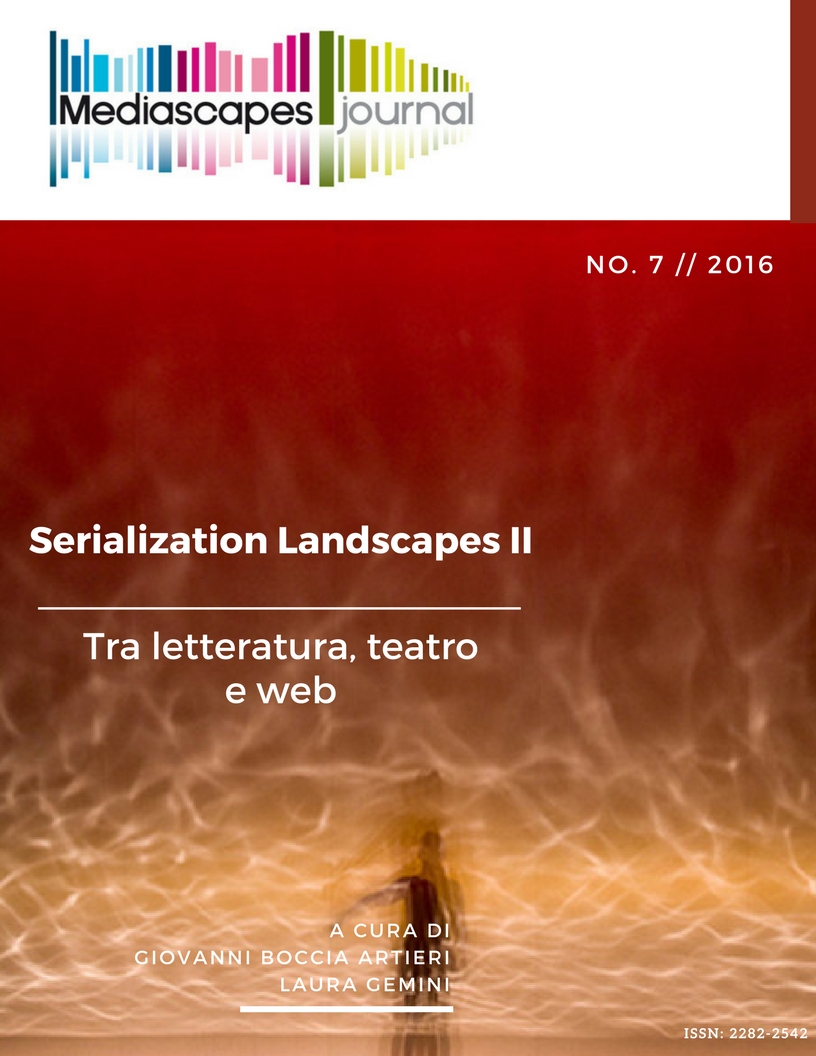Game Series: il linguaggio seriale nel mondo videoludico
Keywords:
Videogames, Games Studies, Videogames serialization, Game Series, Digital GamesAbstract
The field of videogames and game studies it’s a quiet recent matter in a research environment, and it’s based on the studying of a medium that’s multifaceted and in continuous evolution.
This paper wants to focus on the serialization processes in the videogames industry. At the beginning the concept of “serialization” in videogames referred only to the tie-inworks based on the TV series (Lost: Via Domus, C.S.I., 24) or movie sagas (The Godfather saga, Star Wars), or several sequels of the IP (Intellectual Property) software houses owned, as Super Mario, Assassin’s Creed and so on. Then, at a later time, the continual cross-media and trans-media operations (at first only pointed towards the storytelling) among movies, TV and videogames, generated borderline products. Specifically, it’s possible to find a multitude of video-ludic products released with the television formula of the “season” and “episodes”. This means that if in a first moment a videogame user had a complete story to play, with a beginning and an end, now he has to wait the release of new episodes of the game to continue his play. It’s the case of transmedia spin-off The Walking Dead, Season 1 and Season 2, The Wolf Among Us or the recent Life is Strange which, at present, has just one episode released of five announced. This new type of videogame narration, through the interactive using of the player, considers multiple endings that makes more interesting the development of this serial language.
Downloads
How to Cite
Issue
Section
License
Mediascapes Journal is published under a Creative Commons Attribution Licence 4.0.
With the licence CC-BY, authors retain the copyright, allowing anyone to download, reuse, re-print, modify, distribute and/or copy their contribution. The work must be properly attributed to its author. It should be also mentioned that the work has been first published by the journal Anuac.
Having published these contributions for the first time, Mediascapes Journal will have the right to publish them integrally or partially as reprints or possibly as part of a thematic issue, in both digital and printed format.
It is not necessary to ask further permissions both to author or the journal.


